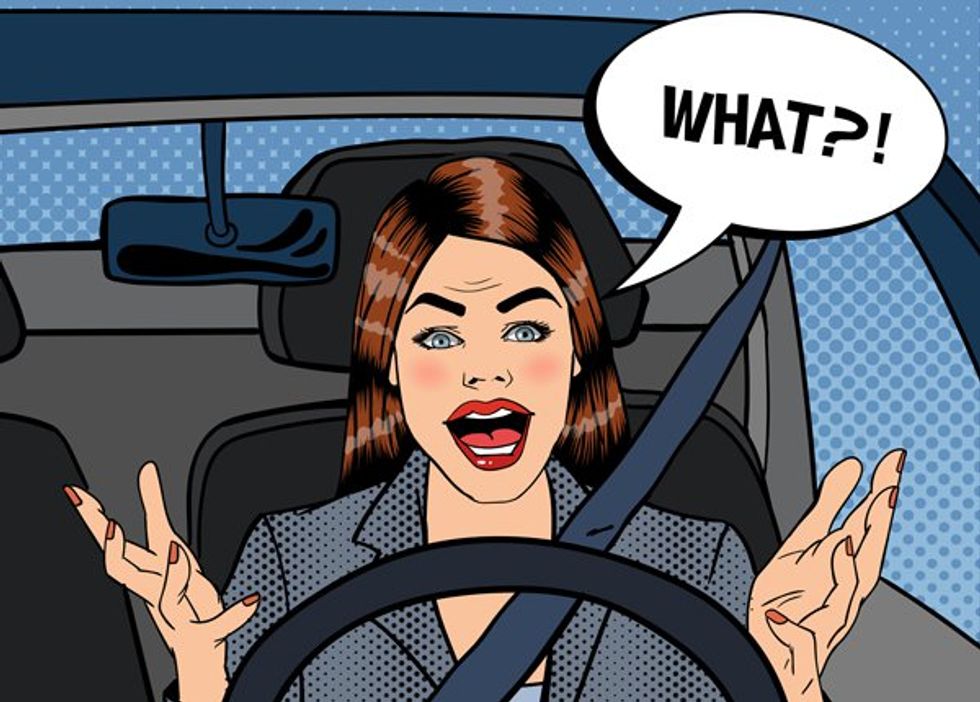Because most of us are in the thick of summer right now (with the exception of my readers in the Southern Hemisphere), you might expect from this blog's title that it will be about air conditioning in the car.
It's not—although having AC in the car can be really important to keeping your cool in summer.
But what I mean by "staying cool" is staying calm.
I've been doing a lot of driving recently, and it amazes and frightens me how aggressively people drive. It seems worse than ever. The amount of tension and impatience I see is absolutely terrifying.
Whether it's on local roads—where people speed through red lights and ignore pedestrian crossways—or on the highways, where drivers tailgate and cut in and out of lanes, coming dangerously close to other cars (or worse, come too close and cause accidents)—there's a lot of road rage out there.
A new study released by the AAA Foundation for Traffic Safety backs this up. Nearly 80 percent of drivers "expressed significant anger, aggression or road rage behind the wheel at least once in the past year," it finds. Even more frightening is that the study suggests that there are approximately 8 million drivers out there who were part of actual road rage.
That's a lot of angry people. And an angry person is a dangerous one.
I get it. Driving can be frustrating. There are a lot of bad drivers. Sometimes you're feeling impatient or stressed, or you're in a bad mood or need to get somewhere fast. I've been there.
But my days of bringing my stress into my car are gone. I'm not sure how it happened—maybe age has mellowed me—but I just know that a car is not the right place to feel that kind of pressure. Besides being dangerous, it's a total waste of emotional energy. I don't want to get lost in the heat of the moment; instead, I take a deep breath and move on.
Just. Not. Worth. It.
The AAA study uncovered some other pretty scary things:
- 51 percent (104 million drivers) purposely tailgate.
- 47 percent (95 million drivers) yell at other drivers.
- 45 percent (91 million drivers) honk their horn to show they're annoyed or angry.
- 33 percent (67 million drivers) make angry gestures.
- 24 percent (49 million drivers) try to block another car from changing lanes.
- 12 percent (24 million drivers) intentionally cut off another car.
- 4 percent (7.6 million drivers) get out of their cars to confront another driver.
- 3 percent (5.7 million drivers) bump or ram another car on purpose.
If you're a person who experiences any of these things, be aware of the tips offered by AAA that can help. Studies show that approximately 1,500 people are injured or killed each year as a result of road rage.
Maybe these steps can save a life—yours or someone you don't even know:
- Don't cause a problem. Specifically, don't be the reason another driver has to change speed or direction. "That means not forcing another driver to use their brakes, or turn the steering wheel in response to something you have done."
- Show tolerance and forgiveness. Maybe the other driver is having a bad day; maybe they're from out of town and lost. "Assume that it's not personal."
- Don't provoke. Sometimes it's better not to respond; avoid making eye contact or gesturing. Make sure to maintain enough distance between vehicles.
Stay safe—and stay cool.
More reading:
How to Keep Your Cool During a Hot Emotional Time
Menopause and Anxiety: What's The Connection?
5 Surprising Anxiety Triggers
Knowing When It's Time to Stop Driving







